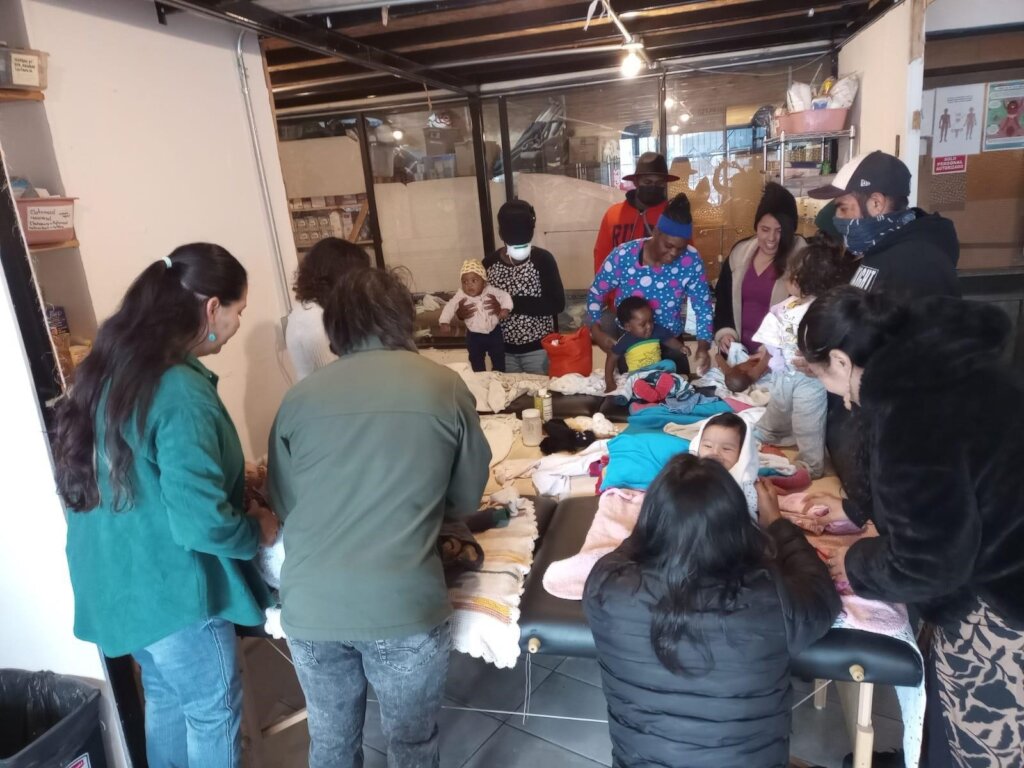By Ana Godinez | Project Leader
The migration context in Mexico has become increasingly restrictive, particularly following agreements with the U.S. government. On June 4, 2024, an executive order prevented migrants from seeking asylum at the border during increased crossings. For the past two years, they have been unable to purchase bus tickets, forcing them to take more dangerous routes. Organizations report that asylum applications have been developed but present accessibility and privacy issues. Women, girls, and trans migrants face violence, discrimination, and lack of access to health services.
On the other hand, the flow of migrants from Central America, the Caribbean, and South America has increased, as well as the number of people from the Middle East and Haiti. Migrants with HIV from Cuba and Guatemala seek fourth-generation antiretroviral in Mexico. Deportations from the United States continue, with serious incidents such as deaths and arbitrary detentions.
In this context, different organizations continue to work to promote and defend the rights of migrants, especially girls and adolescents, through awareness-raising workshops, information activities, and community actions. Rights promotion efforts include workshops on the right to migrate, legal procedures, sexual and reproductive rights, and access to basic services. For example, the Instituto para las Mujeres en Migración A.C. (IMUMI) held workshops in Mexico City where 98 children and adolescents participated. In contrast, 140 girls and adolescents participated in workshops organized by Morritas Luchadoras of Espacio Migrante.
The organizations also manage to cover some basic needs, provide electronic wallets, and orient girls, women, and transgender people during their transit or stay, ensuring that they receive dignified treatment. This includes attention in shelters, community kitchens, schools, and medical attention. Espacio Migrante, Casa Arcoiris, and Borderline Crisis Center function as shelters, providing a safe place for these people. In the comedor migratorio in the ejido La Palma, 60 people migrating are served monthly, with workshops on personal reflection, artistic expression, and self-care.
"The day before her labor, Julieta, an 18-year-old indigenous girl from Guatemala, experienced discrimination at the health center and was denied service (...) Accompanying Julieta's birth was an experience that has enriched us as parteras and motivates us to continue working as women with women. In this way, witnessing that Julieta's biographical trajectory has led her to maintain an active position in the defense of the rights of the migrant population, a community to which she herself belongs, reaffirms the meaning of our work within the feminist movement from our position as parteras and our engagement in collective care as a political commitment".
-Partería y Medicinas Ancestrales
The work of these organizations is essential to support migrants, especially girls and adolescents, in a context of increasing restriction and violence. These resources help to continue promoting that these people receive support and protection during their stay in Mexico, and to strengthen initiatives that advocate for their rights and well-being.
Project reports on GlobalGiving are posted directly to globalgiving.org by Project Leaders as they are completed, generally every 3-4 months. To protect the integrity of these documents, GlobalGiving does not alter them; therefore you may find some language or formatting issues.
If you donate to this project or have donated to this project, you can receive an email when this project posts a report. You can also subscribe for reports without donating.
Support this important cause by creating a personalized fundraising page.
Start a Fundraiser